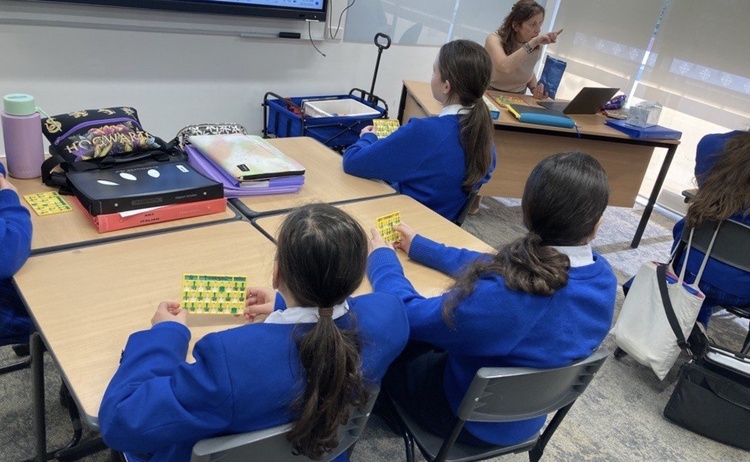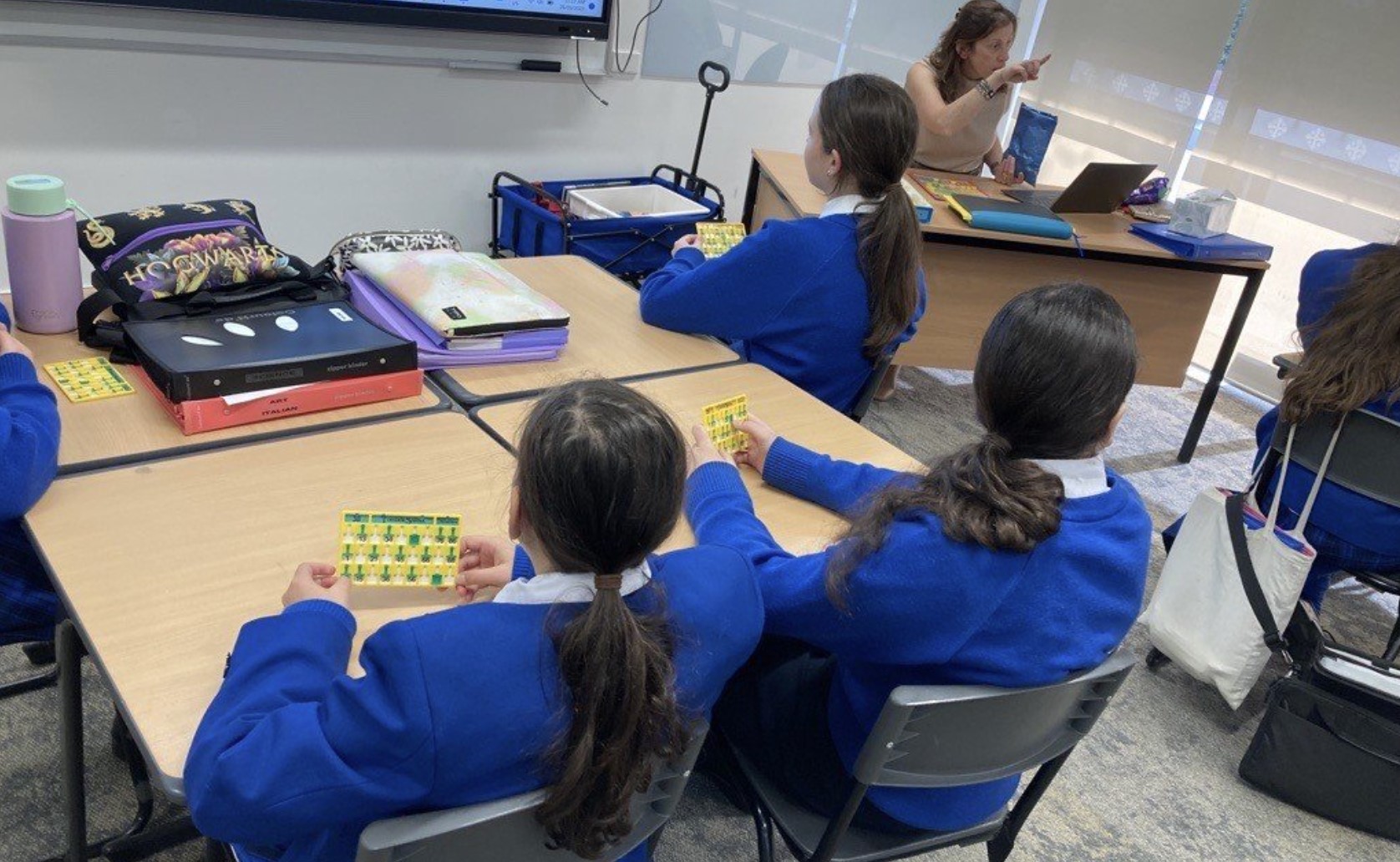MELBOURNE - At Emmaus College in Vermont South, a combination of factors leads to students deciding they want to learn a new language.
A team of motivated and knowledgeable teachers; modern, large and functional facilities that welcome students with ample space for group work; bright and well-equipped classrooms; an area where they can cook and experiment with recipes and a theatre where they can watch movies, shows or participate in group activities.
Maria Sabo is the program coordinator of Indonesian, German and Italian classes, the three languages taught at Emmaus. She also teaches Italian herself.
Sabo, the daughter of Sicilian parents, was born and raised in Melbourne in a family where Italian was always spoken.
“From a young age I knew I would become an Italian teacher,” she recalls.
For year before becoming a teacher, she worked in banking, holding a variety of roles.
“When I left the company, I went back to study to become a teacher,” she explains.
“After a year at a regional school, I got a job here at Emmaus College in 1999, where within a few years I was given the position of Head of Languages.”
Italian is a successful Emmaus program, with about 650 students having chosen the language.
“We have the advantage that a lot of families in our area have a connection to the Bel Paese,” Sabo says.
The fact that there are so many European and Italian families means that language lessons are also particularly popular at home.
“The kids are involved and the feedback we get from the families is also very positive. We often hear that Italian is their favourite subject.”
Sabo also recounts how at Emmaus College the teaching of Dante’s language has always been an important subject because the area was populated by Italian families who migrated to Australia more than 50 years ago.
“We feel a responsibility to keep the language and culture alive, which is why we are constantly looking for ways to encourage the children.”
To successfully educate students on Italian culture and traditions, the group of teachers plan and coordinate activities using an experiential approach aiming to engage the children.
“Sometimes we cook and sometimes we watch a movie or videos. The students love doing these activities even more than learning the language.”
“We create contests and competitions. We do what we can to make the subject interesting,” Sabo continues.
On the more strictly linguistic side, the teaching team this year adopted the approach proposed by Gianfranco Conti, to make grammar lessons exciting and therefore effective for learning.
“We participated in a training day on Conti’s method, focusing on the practical rather than the theoretical part, so focusing on games and activities to be presented in class,” the coordinator explains.
“[It’s] extraordinary because it doesn’t require prior preparation of material by teachers, only an explanation to the children, in class.
“I then organised and reported all the activities on ‘Education Perfect’. I really like to integrate technology into language teaching.”
The strategy adopted by Sabo is to take the topics discussed with the children from out behind their desks and into real conversations, taking advantage of opportunities as they arise.
“Last year, for example, knowing that it was possible to visit a reproduction of the Sistine Chapel in Melbourne, I decided to talk about the Renaissance as a topic for the VCE,” she recalls.
“We watched the film on Michelangelo’s life and watched the 360-degree tour of Florence on YouTube and, of course, studied the history of the Sistine Chapel, analysing the different scenes in the painting.
“When we went to visit the reproduction in the city, the children remembered what we had said in class and found the parts of the work we had studied.”
Inspired by the principle that language is best learnt outside the classroom, and aided by the arrival of new principal Karen Jebb, the school plans to join the ‘Exchange Program’.
For several years Emmaus College has already paired with an Italian food and hospitality school in Pinerolo, in the province of Turin, where children will be hosted again after the hiatus imposed by Covid.
In the meantime, Emmaus preparing to welcome their Italian peers who will soon arrive to spend three weeks in Melbourne.
As per tradition, the visitors will run ‘La strada,’ the school’s cafeteria which comes alive with traditional Italian scents while being run by Pinerolo students.
“It’s really an enriching experience for everyone,” says Sabo.
“The guys from the Alberghiero give cooking lessons in Italian to our students, teaching them how to prepare some dishes.
“They do lessons with us and then, for a week, they work in Italian restaurants and clubs in Melbourne.”
Sabo never tires of seeking new stimuli for the students, piquing their curiosity through a modern-day reading of the lives of Italians in the past.
“In Year 11, for example, we are tackling the topic of immigration and we thought of drawing parallels between past and present habits, comparing the topic of brides by proxy with Tinder, the online dating app.”












